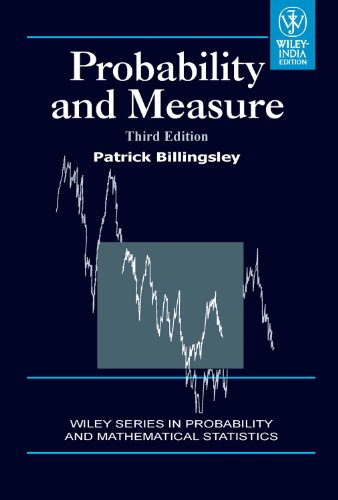=+19.6. Show that a Bayes rule corresponding to p = ( p), .... p.) may not be
Question:
=+19.6. Show that a Bayes rule corresponding to p = ( p), .... p.) may not be admissible if p; = 0 for some i. But there will be a better Bayes rule that is admissible.
Fantastic news! We've Found the answer you've been seeking!
Step by Step Answer:
Related Book For 

Probability And Measure Wiley Series In Probability And Mathematical Statistics
ISBN: 9788126517718
3rd Edition
Authors: Patrick Billingsley
Question Posted:






